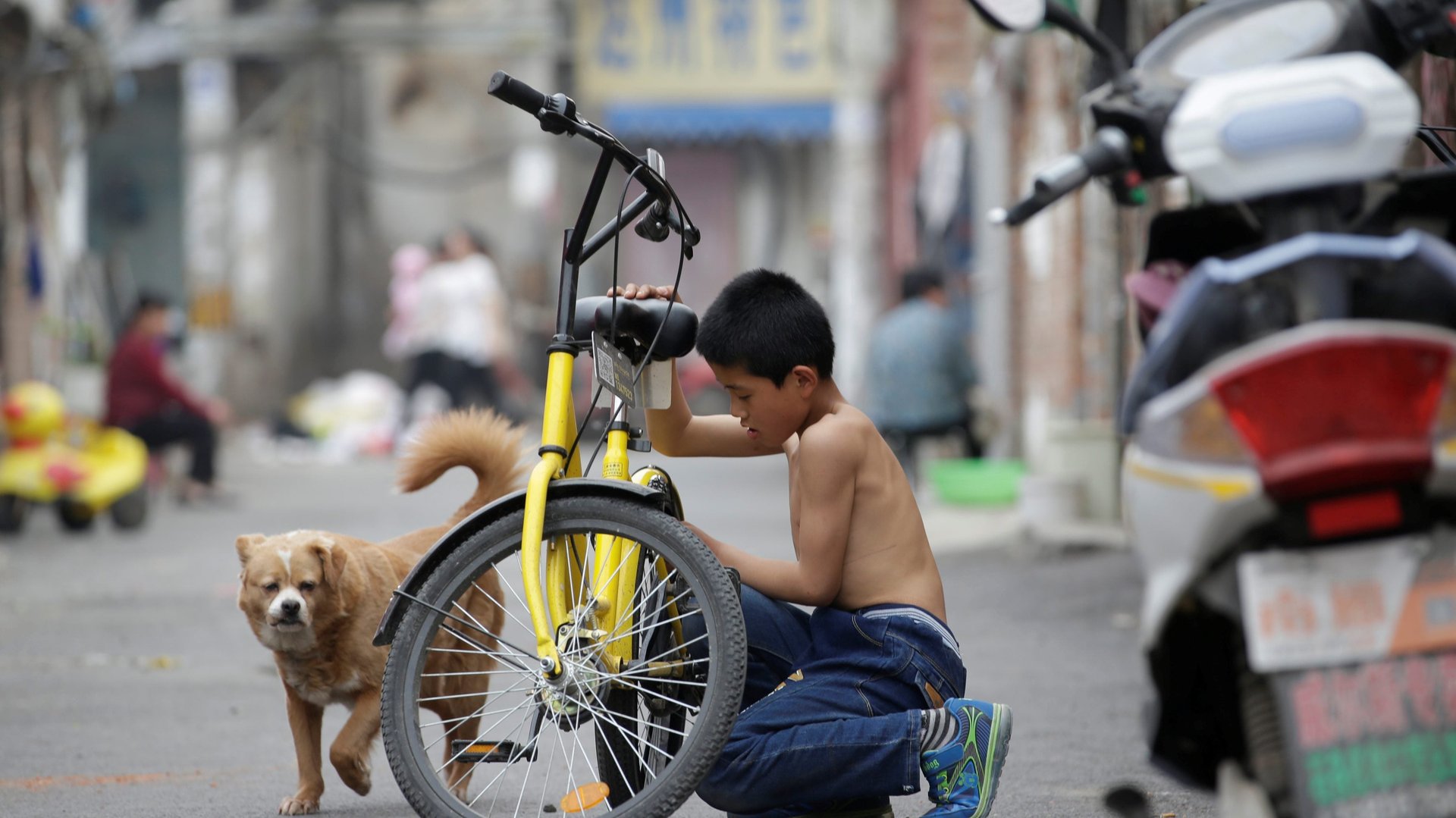This may be the surest sign yet that China’s sharing economy is far from dead
China’s sharing economy has had a bumpy ride in the last two years, led by the fading of a handful of bike-sharing startups such as once high-flying Ofo. But a less-hyped corner of the industry is doing surprisingly well.


China’s sharing economy has had a bumpy ride in the last two years, led by the fading of a handful of bike-sharing startups such as once high-flying Ofo. But a less-hyped corner of the industry is doing surprisingly well.
Shared powerbanks, which monetize the simple idea of offering a way to recharge in public places like hotels, restaurants and karaoke bars, have seen the number of users of these services grow from around 110 million in June last year to around 130 million this June, according to Chinese internet data provider Trustdata, which released the figures (in Chinese) last week. Another more bullish set of data on the segment was published (in Chinese) by Chinese consultancy iiMedia Research days after the Trustdata one, which said users for shared powerbanks already reached 196 million last year and could get to 300 million by the end of 2019.
“What we are seeing is a wave of innovation in micro-rentals. This is the result of widespread adoption of smartphones and mobile payments. Go to any restaurant in China and you will see people charging their phones while eating,” said Jeffrey Towson, a business professor at Peking University.
While powerbanks may seem an odd thing to share given they are relatively cheap to own, the top three players, Jiedian, Xiaodian and Guaishou Chongdian, who account for over 85% of the market share, have achieved profitability, according to iiMedia. The sector, which does away with the small but significant pain point of having to remember to charge and carry one’s own powerbank, still has huge potential going forward by expanding coverage to other venues with big footfalls like bus stations and sightseeing spots, according to the iiMedia report. Lower-tier cities can also be a new growth engine, as well as the adoption of 5G mobile phones, which will require a larger volume of power consumption, it said.
The flourishing of shared powerbanks, meanwhile, comes against the backdrop of many sharing economy startups that have been struggling in China. In addition to bike firm Ofo, which has over 13 million users (in Chinese) awaiting a refund of their deposits, car-sharing startups Togo, Ezzy or Uu have also faced a cash crunch, leaving worried users queuing outside or even storming into (in Chinese) some of the companies’ offices asking for a refund of deposits. Ride-hailing giant Didi Chuxing, said it will cut off units considered not essential to its main business, citing the need to “brace for the winter” (in Chinese). China’s economic slowdown, coupled with a tougher climate for fundraising in the wake of the sluggish performance of several newly-listed Chinese tech companies last year, have contributed to the situation.
One of the key factors that has helped shared powerbanks survive could be their waiver of deposits, a key factor affecting Chinese customers’ willingness regarding using a rental service, according to observers. Most of the companies in this segment allow users to rent the devices without putting down a deposit as long as they have a score over 600 under Sesame Credit, a feature developed by Chinese finch giant Ant Financial to analyze users’ digital footprints on affiliated sites for creditworthiness, with scores that range from 350 to 950.